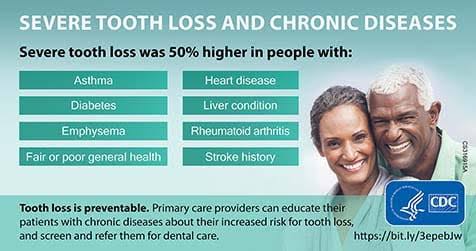
Tooth loss is an indicator of poor memory in the elderly. “Tooth loss is linked to slow walking in the elderly (Associated Press)”
A recent British study concluded that losing teeth at an advanced age is an indication that older people suffer from poor memory and slow motor activity. Researchers found that study participants who lost their teeth had 10% weaker memory than those who still kept their teeth, and they also walked slower. For the same.
Researchers at University College London in the United Kingdom explained in their study, the details of which they published on Thursday in the Journal of the American Geriatrics Society, that tooth loss is linked to slow walking speed and poor memory functions in the elderly.
The researchers followed data on 3,100 people over the age of sixty in England, by evaluating their performance on memory and walking speed tests, and conducting a medical examination of their teeth.
The researchers found that participants who lost their teeth had 10% weaker memory than those who still had them, and they also walked slower in the same proportion.
Indicator
The leader of the research team, Dr. Georgios Tsakos, Professor of Epidemiology and Public Health at University College London, said that the tooth loss index could be used as an early sign of the deterioration of the mental and physical abilities of older people in old age, especially at the age of 60 to 74 years.
He added that this is the first time that scientists have studied the impact of tooth loss on human health, as they have previously studied various social and economic factors and the effects of smoking and drinking alcohol.
Gum disease is the main cause that leads to tooth loss, and gum infections are linked to other chronic diseases, such as diabetes and heart disease, as a result of germs entering the human body through bleeding and swollen gums.






